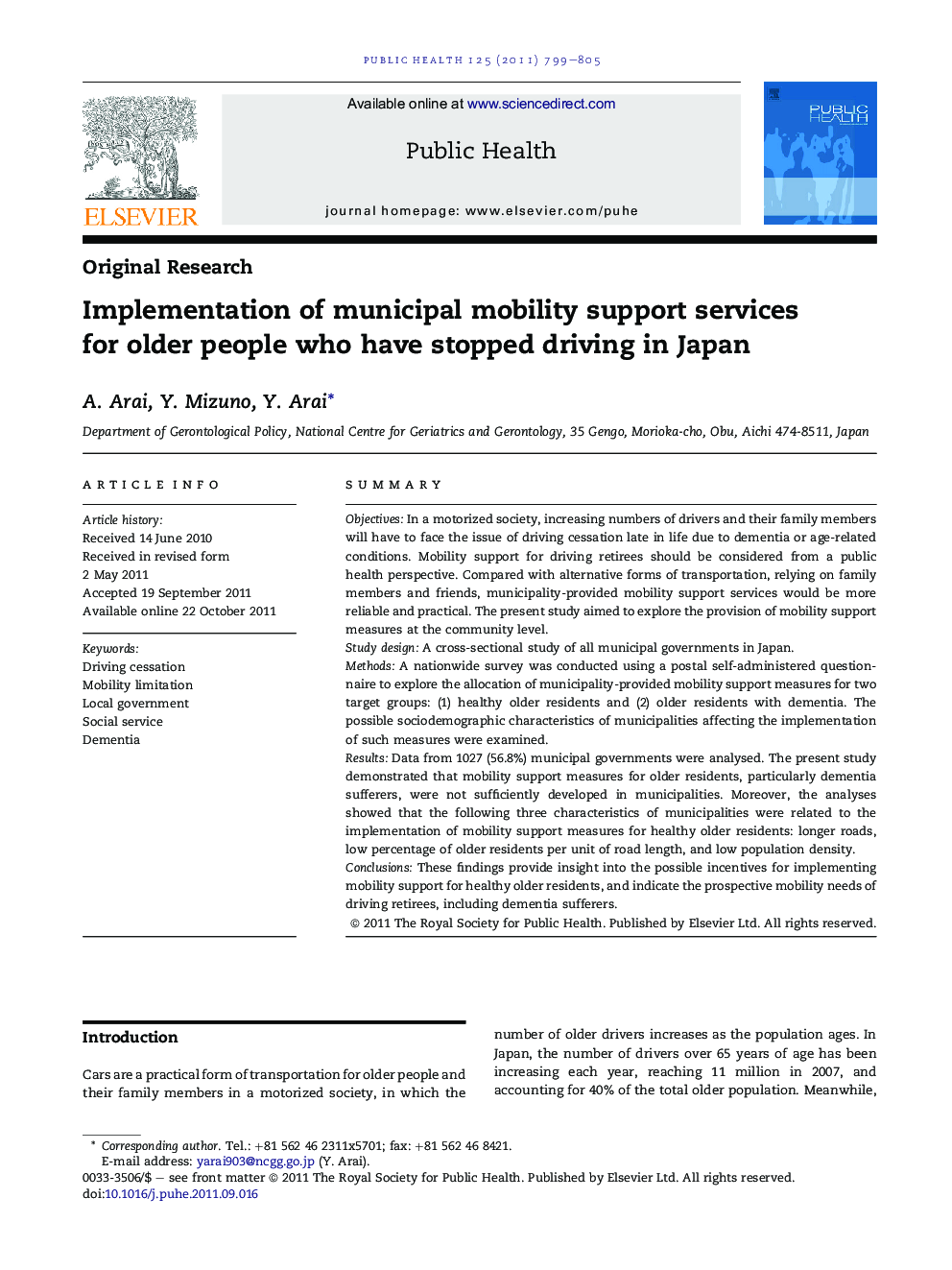| Article ID | Journal | Published Year | Pages | File Type |
|---|---|---|---|---|
| 1087863 | Public Health | 2011 | 7 Pages |
SummaryObjectivesIn a motorized society, increasing numbers of drivers and their family members will have to face the issue of driving cessation late in life due to dementia or age-related conditions. Mobility support for driving retirees should be considered from a public health perspective. Compared with alternative forms of transportation, relying on family members and friends, municipality-provided mobility support services would be more reliable and practical. The present study aimed to explore the provision of mobility support measures at the community level.Study designA cross-sectional study of all municipal governments in Japan.MethodsA nationwide survey was conducted using a postal self-administered questionnaire to explore the allocation of municipality-provided mobility support measures for two target groups: (1) healthy older residents and (2) older residents with dementia. The possible sociodemographic characteristics of municipalities affecting the implementation of such measures were examined.ResultsData from 1027 (56.8%) municipal governments were analysed. The present study demonstrated that mobility support measures for older residents, particularly dementia sufferers, were not sufficiently developed in municipalities. Moreover, the analyses showed that the following three characteristics of municipalities were related to the implementation of mobility support measures for healthy older residents: longer roads, low percentage of older residents per unit of road length, and low population density.ConclusionsThese findings provide insight into the possible incentives for implementing mobility support for healthy older residents, and indicate the prospective mobility needs of driving retirees, including dementia sufferers.
